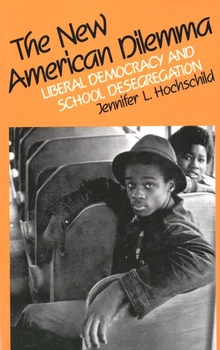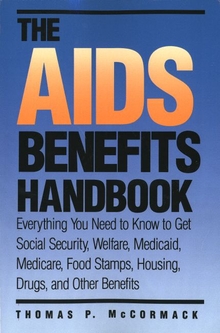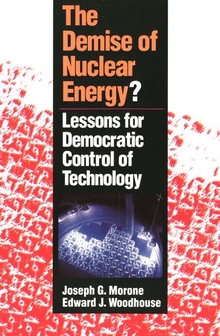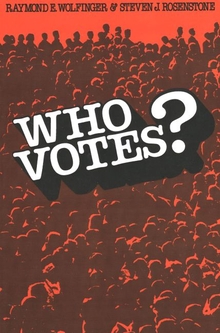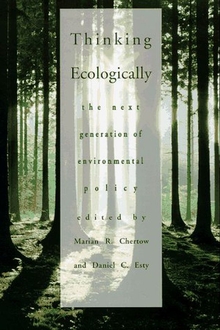The New American Dilemma
WARNING
You are viewing an older version of the Yalebooks website. Please visit out new website with more updated information and a better user experience: https://www.yalebooks.com
Liberal Democracy and School Desegregation
Jennifer L. Hochschild
Conventional wisdom and democratic theory hold that the best way to achieve controversial policy changes is in small, cautious steps and with participation of the various groups involved. Yet America’s thirty years of experience with school desegregation shows this belief to be false. In this provocative new book, Jennifer Hochschild argues that when incremental and participatory methods are used to desegregate schools, both blacks and whites end up worse off—with little freedom and equality for blacks, much disruption and pain for both races, and few educational gains for anyone. However, school desegregation can succeed—for everyone—when rapid and extensive change is imposed by nonelected officials, at a centralized level, and without citizen involvement.
Hochschild examines the record of school desegregation to show why this is so. She demonstrates, for example, that parental advisory groups have been ineffective or even harmful in designing new plans; that busing a few students short distances has been less effective than busing many students throughout a metropolitan area; that slowly phasing in desegregation increases white flight. More profoundly, she shows that racism is deeply embedded in our society and that whites may not be as willing to give it up as they think.
Hochschild contends that we must choose between superficial “safe” changes that benefit a few at the expense of many and profound, deeply unpopular changes that in the long run will liberate most. That is the real American dilemma.
“A comprehensive synthesis of what is known about the processes of school desegregation and a powerful policy-oriented argument on a subject whose crucial significance Americans have been unable to wish away.” –Paul E. Peterson, Brookings Institution
Hochschild examines the record of school desegregation to show why this is so. She demonstrates, for example, that parental advisory groups have been ineffective or even harmful in designing new plans; that busing a few students short distances has been less effective than busing many students throughout a metropolitan area; that slowly phasing in desegregation increases white flight. More profoundly, she shows that racism is deeply embedded in our society and that whites may not be as willing to give it up as they think.
Hochschild contends that we must choose between superficial “safe” changes that benefit a few at the expense of many and profound, deeply unpopular changes that in the long run will liberate most. That is the real American dilemma.
“A comprehensive synthesis of what is known about the processes of school desegregation and a powerful policy-oriented argument on a subject whose crucial significance Americans have been unable to wish away.” –Paul E. Peterson, Brookings Institution
"In this powerful tract on school desegregation, Jennifer Hochschild formulates the most searching challenge to the theory of incrementalism that I have come across in recent years." —David Braybrooke
"A comprehensive synthesis of what is known about the processes of school desegregation and a powerful policy-oriented argument on a subject whose crucial significance Americans have been unable to wish away." —Paul E. Peterson, Brookings Institution
"A well-written, insightful survey and analysis of the pattern of school desegregation in American society since the Supreme Court's Brown decisions and a first-rate analysis of the implementation of public policy in the US, with perceptive remarks on incrementalism as a method of change."—Choice
"The New American Dilemma is policy analysis as it should be done, thorough in its consideration of evidence and bold in its examination of fundamental issues of political practice and social theory."—Clarence N. Stone, Ethics
"Important 30 years after Brown, and provocative wherever Hochschild's sharp, darting intellect alights." —Kirkus Reviews
"Hochschild's book skillfully illuminates the subject of desegregation in public education and the problems of racism. It is an important book." —Eric S. Tachau, The Louisville Courier-Journal
"Fresh evidence that school desegregation in America still scrapes the raw nerve endings of race and class. . . . [Hochschild] is at home in the world of ideas. Her book is at once a work of political theory and an examination of the prospects for school desegregation.... Whatever stance one takes toward her thesis, much of the argument is convincing." —J. Anthony Lukas, Nation
"This is a thorough, well-documented study of school desegregation that is highly recommended by the reviewer for professionals in this area." —David Steiniche, Perspective
"This book makes a cogent case for the urgent need as well as the feasibility of desegregation. . . . This is a carefully reasoned and engaging background for what should be a national debate."—Andrea Levin, Journal of Policy Analysis and Management
"This is a must book not only for those who have lost—or never had—a vision of school desegregation as a necessary tool for the elimination of racial inequality in our society: it is also a compendium of guidelines and supporting evidence for those who remain committed to this vision. The level of scholarship is monumental...and the logic and forcefulness of Hochschild's arguments seem inescapable."—M. Richard Kramer, The Annals of the American Academy of Political and Social Change
"The stunning boldness of [Hochschild's] thesis is supported by evidence of wide scholarship, careful structural analysis and synthesis, explicit political theory, and, above all, an extraordinary and searching intellect."—Burke Marshall, Yale Law & Policy Review
"Jennifer Hochschild has written an important study of desegregation that covers law, history, practice, and policy. She proposes a solution that many readers will challenge. But few will question the power and logic of her underlying analysis."—Frank D. Aquila, Phi Delta Kappa
"The New American Dilemma challenges almost all positions cherished by liberals and leftists, blacks and whites, including gradualism, democratic participation and ethnic solidarity. Because of that alone, The New American Dilemma is invaluable." —Richard H. King, Journal of American Studies
"A solid contribution to the literature on desegregation. . . . . This thought-provoking book provides an excellent perspective on the thirty years of desegregation since Brown." —Mary Jo Newborn, Michigan Law Review
Winner of a 1985 Award from the American Educational Studies Association
ISBN: 9780300031140
Publication Date: September 10, 1984
Publication Date: September 10, 1984
264 pages, 5 1/2 x 8 1/4

